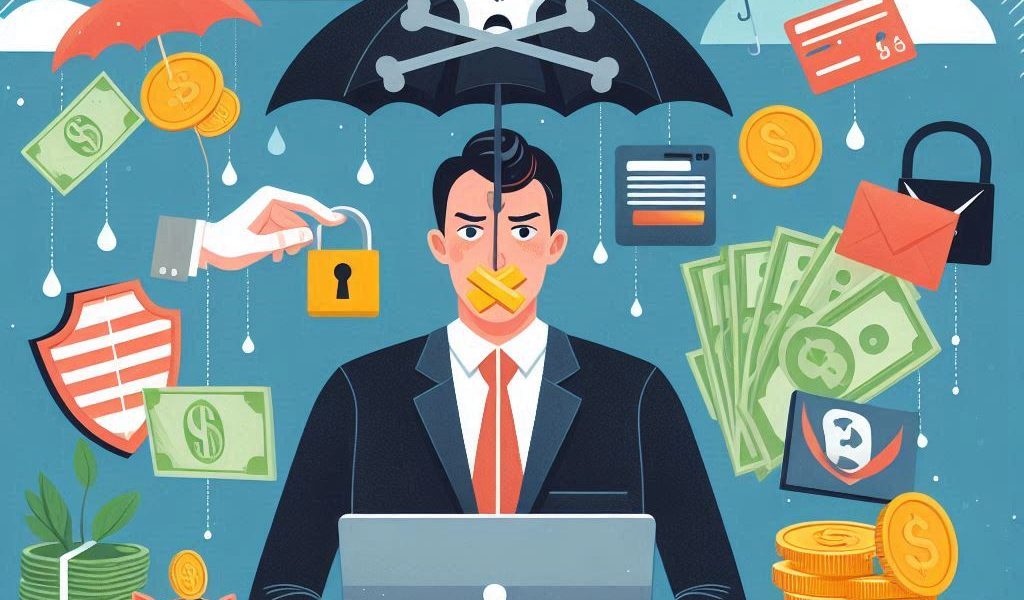Insurance is one of the most important investments you can make to safeguard your financial future. However, as the industry continues to grow, so do the risks of falling victim to fraudulent schemes. From misleading policies to fraudulent agents, insurance scams are increasingly becoming a threat to both individuals and businesses. This blog will guide you through the common insurance scams and provide actionable tips on how to avoid them, helping you protect your investments and ensure a secure financial future.
1. Understanding Common Insurance Scams
Insurance scams are deceptive practices that attempt to take advantage of policyholders for financial gain. Some of the most common scams include:
- Premium Diversion Scams: Fraudulent agents or brokers collect premium payments without actually purchasing the policy.
- Phantom Coverage Scams: A scammer convinces you to pay for non-existent coverage, leaving you with no protection.
- Fake Claims: Fraudulent claimants attempt to receive compensation for damages or injuries that never occurred.
- Premium Overcharging: Some scammers inflate premiums to make extra money from unsuspecting consumers.
It’s essential to recognize the red flags of these scams and take action before you become a victim.
2. Red Flags to Watch Out For
Being aware of the warning signs of an insurance scam is your first line of defense. Here are some key red flags:
- Unsolicited Contact: If you receive an unsolicited phone call or email offering an insurance policy, proceed with caution. Scammers often target people who didn’t initiate the contact.
- Too Good to Be True Offers: If an insurance offer sounds too good to be true, it probably is. Be wary of policies that offer very low premiums for extensive coverage.
- Pressure to Buy Quickly: Scammers often use high-pressure tactics to convince you to purchase insurance immediately without proper consideration. Always take your time and research before making a commitment.
- Lack of Transparency: Legitimate insurance companies will provide clear details about the policy terms and conditions. If the company is vague or unwilling to provide documentation, it’s a sign to be cautious.
3. Research the Insurance Provider
Before purchasing any insurance policy, it’s crucial to thoroughly research the company. Here’s what you should do:
- Check for Licensing: Ensure the insurance provider is licensed in your state or country. This can usually be verified through government or regulatory websites.
- Read Reviews and Testimonials: Look for customer reviews, testimonials, and ratings from reliable sources. This will give you a sense of the company’s reputation and reliability.
- Verify Contact Information: Legitimate insurance companies will have clear contact details, including a physical address and phone number. Make sure these details are easily accessible and functional.
4. Understand the Policy Terms
A common trick used by scammers is to manipulate the terms of the policy. Always read the fine print before committing. Here are a few tips to ensure you’re getting what you paid for:
- Know the Coverage Details: Understand exactly what is covered under the policy and what is excluded.
- Check for Hidden Fees: Make sure there are no hidden charges or additional costs that may not be apparent upfront.
- Ask Questions: If there’s something you don’t understand, ask the agent to explain it clearly. A legitimate agent will be more than happy to answer your questions.
5. Use Trusted Platforms for Purchasing Insurance
Today, many people buy insurance policies online. While online purchases can be convenient, they also expose you to a higher risk of encountering scams. To minimize this risk, use trusted and well-known platforms for buying insurance. Look for websites with SSL certificates (indicating secure transactions), and avoid purchasing from unverified sources.
6. Report Suspicious Activity
If you believe you’ve encountered an insurance scam, don’t hesitate to report it to the relevant authorities. This could include:
- State Insurance Commissioner: They can provide assistance and may investigate the matter further.
- Federal Trade Commission (FTC): The FTC handles consumer complaints related to deceptive practices.
- Better Business Bureau (BBB): You can report the company to the BBB for fraudulent activities.
7. Protect Your Personal Information
One of the most common ways scammers get access to your money is through identity theft. Never share sensitive personal information unless you’re certain the provider is legitimate. Always confirm the identity of the caller or the company requesting your details.
8. Work with Reputable Insurance Agents
If you’re working with an agent to find insurance, make sure they are well-regulated and trustworthy. Look for:
- Credentials and Experience: A reputable agent should have proper certifications and years of experience in the industry.
- Transparent Fees: The agent should be transparent about how they are compensated and any additional fees.
- Clear Communication: A trustworthy agent will always make sure you understand the terms of the policy and never pressure you into making a decision.
Conclusion
Insurance scams are a serious threat, but with the right knowledge and precautions, you can protect yourself and your investments. By staying informed, recognizing the red flags, and working with trusted companies and agents, you can avoid falling victim to fraud. Always take the time to research your options and don’t rush into decisions. Safeguarding your future requires vigilance, and understanding how to avoid insurance scams is an essential part of that process.




